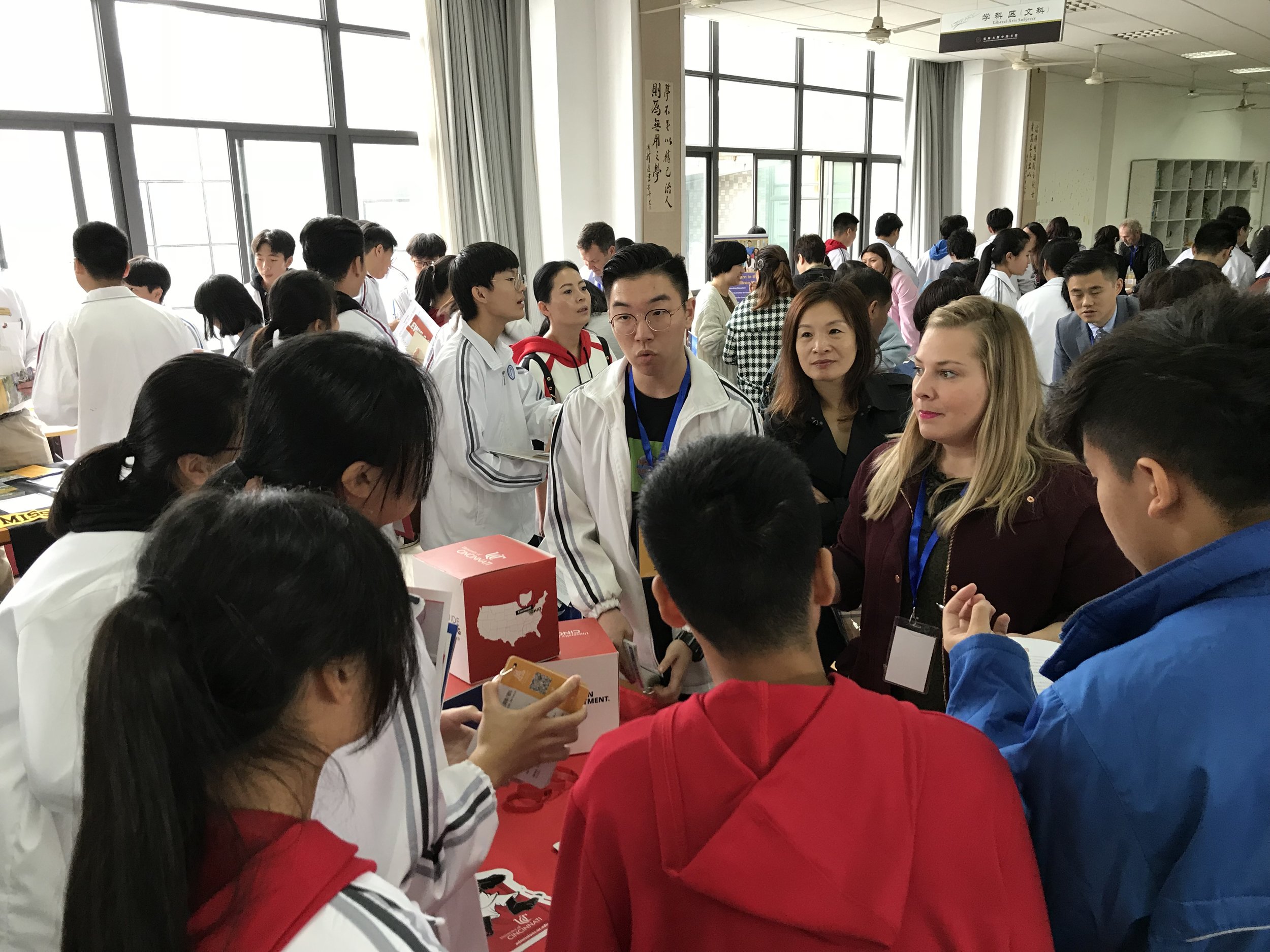Standing Out with Effective Follow Up
China is the largest sender of international students, and recruiters have taken note of the Chinese market for international education by meeting with students, counsellors, and agents. Chinese students interested in studying abroad will have met with many recruiters, especially those from cities like Beijing and Shanghai. For recruiters looking to foster amicable relationships with counsellors, parents, and students, a consistent engagement strategy is imperative.
K-12 Recommendations
International private schools have been increasing as parental expectations for sending their offspring abroad for university has popularized. These schools, along with international departments at domestic public schools, are dominant senders of study abroad students
Build lateral connections across school groups and counseling departments
Have schools and counsellors add you to their mailing lists
Try to contact 10 new schools every semester
Counsellor Recommendations
Parents who send their children to international schools are increasingly expecting tuition to replace the need for an agency to help their child get into overseas universities. Due to the agent deregulation policy implemented this year, agents have become less important and more players are expected to challenge existing powerhouses.
Maintain an updated counsellor database and ask counsellors every May if they plan on staying
Realize that there are tensions between agents and counsellors due to conflict of interests and may not want to compete for your attention
Use WeChat Tags to sort them into city and title, remarks so that you know their name, school, location, and job
Tags come in handy when you need to send out a series of identical messages at once and removes the hassle of manually looking through your contact list.
Remarks can also be searched for instead of going through a contact list
Try to send holiday greetings to counsellors as a long-term purely business relationship is considered rude and impersonal
Talking with Students and Parents
To keep track of high-quality students based off of your conversations, rate the conversation into four categories:
A: Superlative
B: Satisfactory
C: Unsatisfactory
F: Subpar
Collect interest cards or have potentials type into your CRM, rate them according to the above grading system and write a sentence about what you discussed. While you may want all potentials to follow your WeChat, consider adding As and Bs on WeChat, perhaps even parents of Bs as well. For A, and maybe B, contacts, consider sending them a hand-written note, an English and Chinese bilingual follow up email, or a template WeChat message with customized remarks reminding them of what you talked about and adding them to your mailer list. When following up with students and parents, speed is very much so appreciated—try to follow up as soon as possible. The optimal time for follow up is within 2-3 weeks of meeting the student, on weekends and early evenings (China time).
Fundamentally, following up with contacts is an aspect of Guanxi development--relationships need to be built over time to establish trust. In any business or interpersonal relationship in China, regular follow up as reciprocity is a way to secure Guanxi. With business relationships, a completely formal business relationship is considered rude and unsophisticated by Chinese people. Developing such Guanxi with schools and counsellors ensures the stability of that channel while following up with students reminds them of your institution and encourages them to apply.



